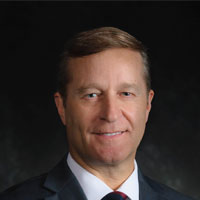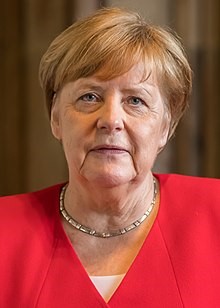February 22, 2021
Angela Merkel
Angela Dorothea Merkel (nee Kasner; born 17 July 1954) is a German politician who has been Chancellor of Germany since 2005. She served as Leader of the Opposition from 2002 to 2005 and as Leader of the Christian Democratic Union (CDU) from 2000 to 2018. A member of the Christian Democratic Union, Merkel is the first female chancellor of Germany. Merkel has been widely described as the de facto leader of the European Union, the most powerful woman in the world, and by many commentators since 2016 as the “leader of the free world”
Merkel, who has served as Germany’s chancellor since 2005, earned the honour of “Time Person of the Year” in 2015. In her profile, Time observed that “…her political style was not to have one; no flair, no flourishes, no charisma, just a survivor’s sharp sense of power and a scientist’s devotion to data.” Her educational background (a Ph.D. in quantum chemistry) has taught her to take a methodical, low-key approach to problem-solving.
Though the world of politics can be profoundly different from many walks of life, Merkel’s leadership traits standout. The three attributes that are most prominent include:
1. She has never been afraid to be a lone voice. In fact, Merkel is accustomed to minority platforms. She is a divorced Protestant in a Catholic party. She is from East Germany, entering politics as an “Ossi” in the newly unified Germany of the 1990s where easterners were still considered aliens. Her educational background is not in politics or international relations but in quantum chemistry. And of course, she’s a woman, another identifier in which she’s had to stand more or less on her own.
2. She is a master of leading from behind. Merkel has proudly practiced what Willy Brandt once called Die Politik der kleinen Schritte (the politics of baby steps), or as we call it in the Canada, leading from behind. Reading between the lines, you can ascertain that Merkel has learned a thing or two from Nelson Mandela, widely acknowledged as a champion of leading from behind, which is to say, viewing leadership as a collective activity. Several leadership commentators, have stated that Merkel believes leading from behind is the ultimate form of purpose-based leadership. It is what makes people willing to do the hard tasks of innovation together and work through the inevitable conflict and tension.
3. Her values have helped to reverse and rescue Germany’s reputation from the past. Germany has spent the past 70 years testing antidotes to its toxically nationalist, militarist, genocidal past. Merkel’s values–humanity, generosity, tolerance–are an antidote. In 2015, there have been several occasions when these values have come into play, whether it was in response to Vladimir Putin’s actions in the Ukraine, the Greek financial crisis, or the violence in Paris. When events like this precipitate a negative reflex, she was unafraid to make her stand, even if it meant more time for Merkel as a lone voice. It was nothing she hadn’t done before despite her approval ratings dropping 20 points.
But with her political career nearing its end – she’ll leave office in 2021 – she’s now showing another quality: a willingness to dramatically change course when new evidence calls for it. In May of 2020, and as a result of the ongoing COVID 19 pandemic, she and French President Emmanuel Macron proposed that the EU borrow €500 billion ($545 billion) on financial markets to fund the effort and stimulate the economy. So much for an austere and debt-free Germany.
Helping needy neighbors was good for everyone, she insisted. “It is in Germany’s interest to have … the European Union grow closer together, not fall apart. As ever, what’s good for Europe is good for us.” That broad perspective she embraces holds great promise to guide Europe through this economic storm, and allow it to emerge again: prosperous, democratic, and united. In 2015, Time Magazine paraphrased that …leaders are tested only when people don’t want to follow. For asking more of her country than most politicians would dare, for standing firm against tyranny as well as expedience, and for providing steadfast moral leadership in a world where it is in short supply. She is a great leader.



